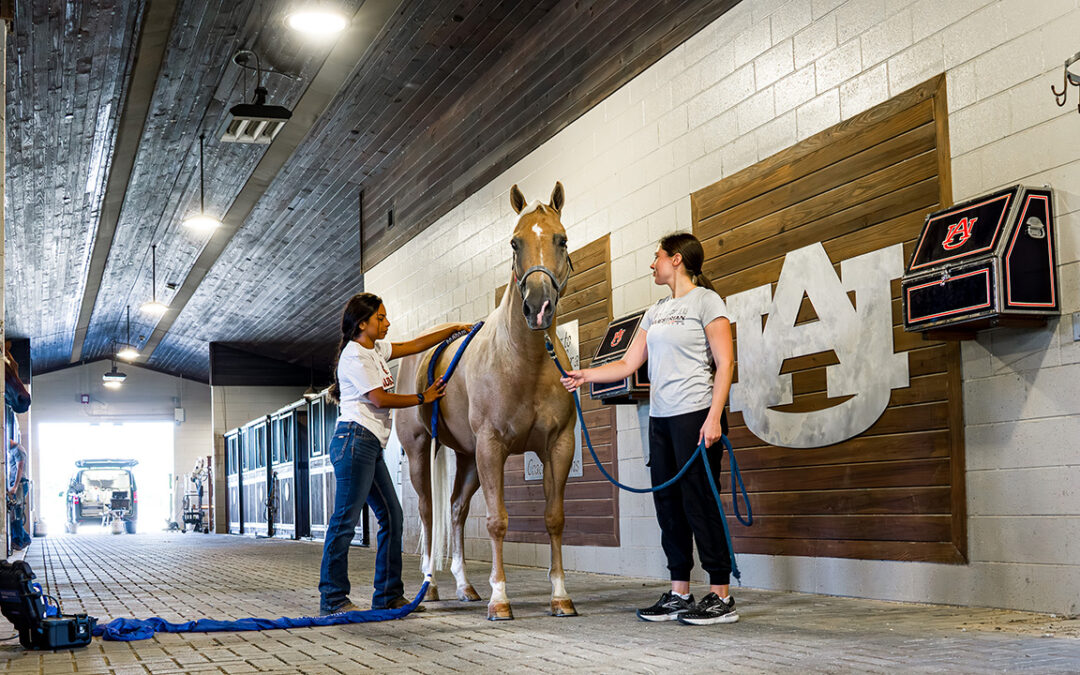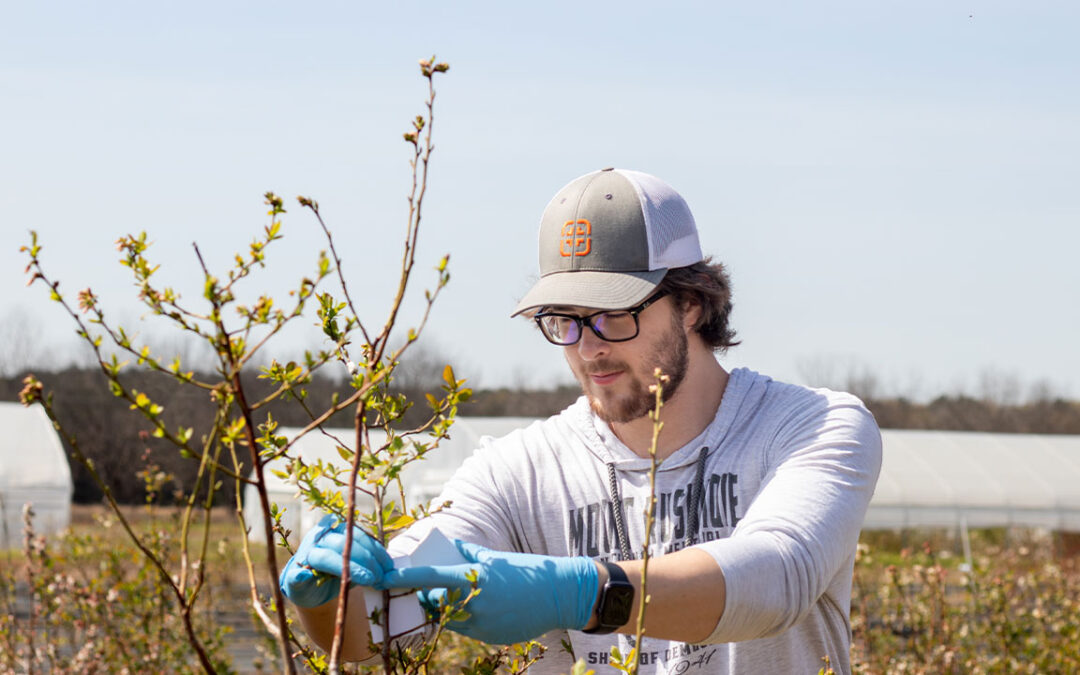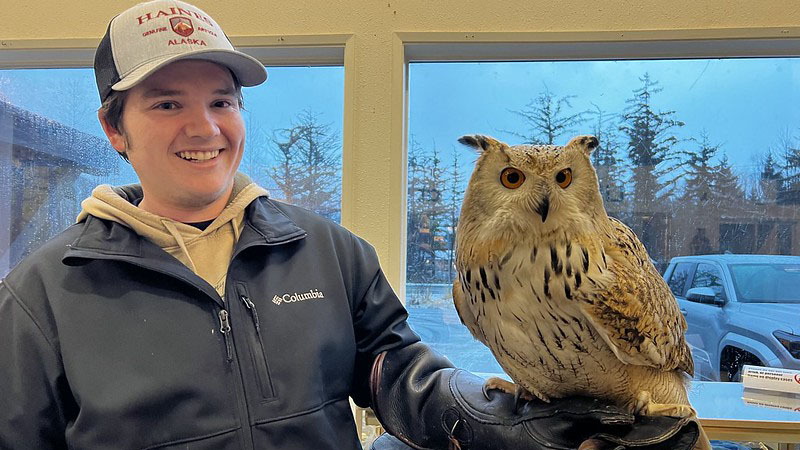Featured
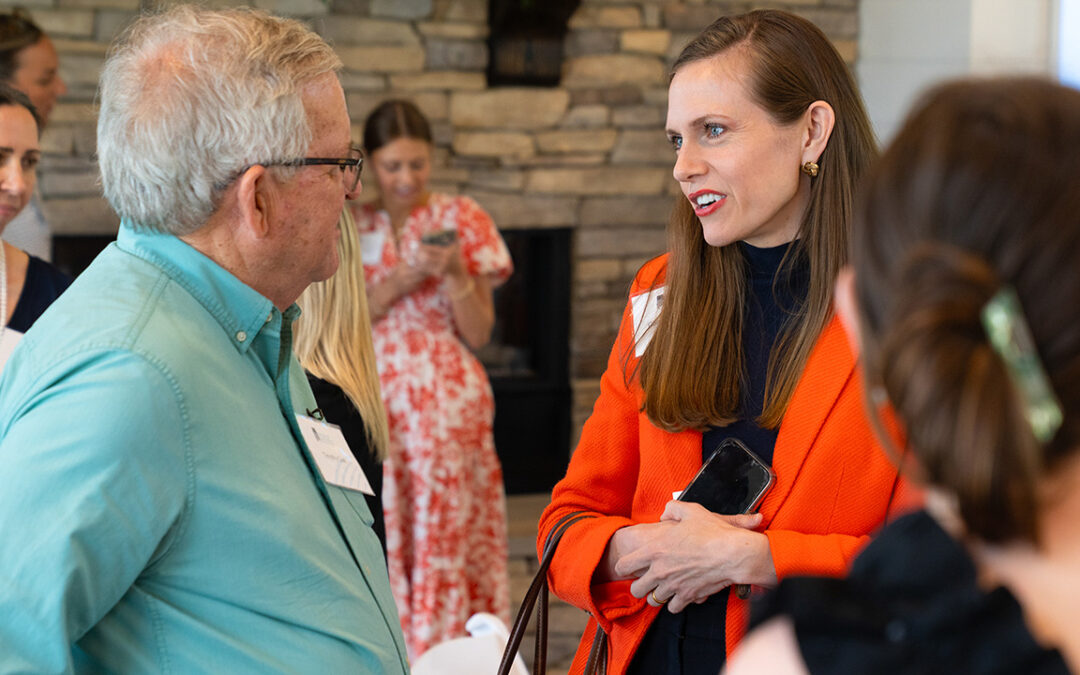
2026 Spring Leadership Luncheon to feature Southern Baked Pie Company founders
Auburn College of Agriculture to host annual luncheon on Thursday,...
Popular
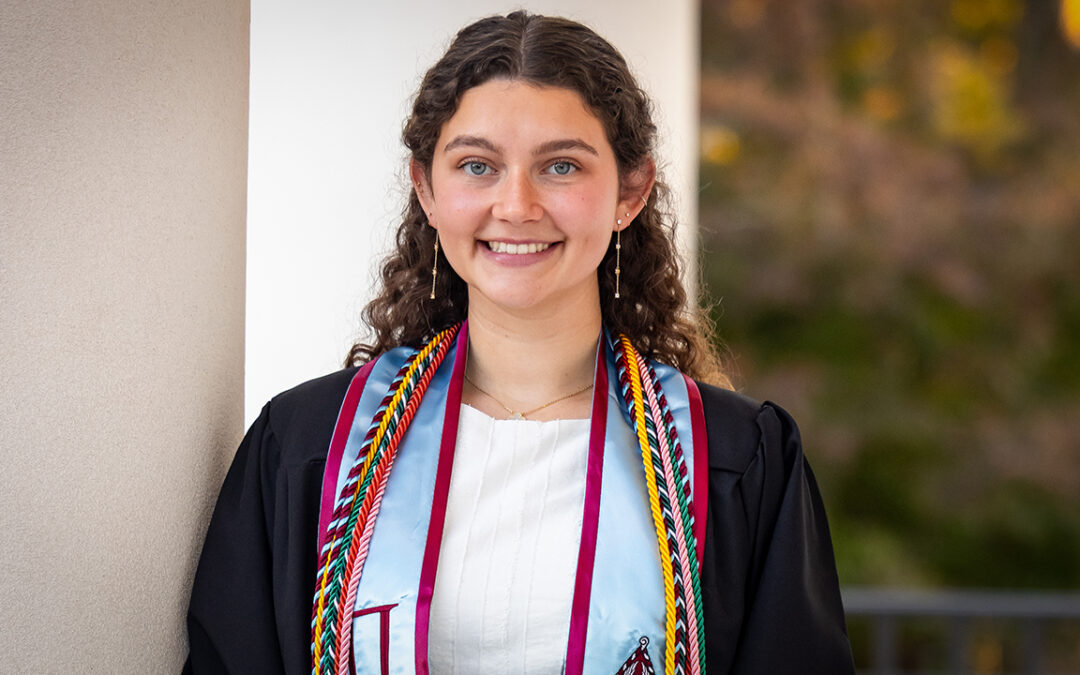
Olivia Hudson named College of Agriculture fall 2025 student marshal
A candidate for a Bachelor of Science in agricultural business and...
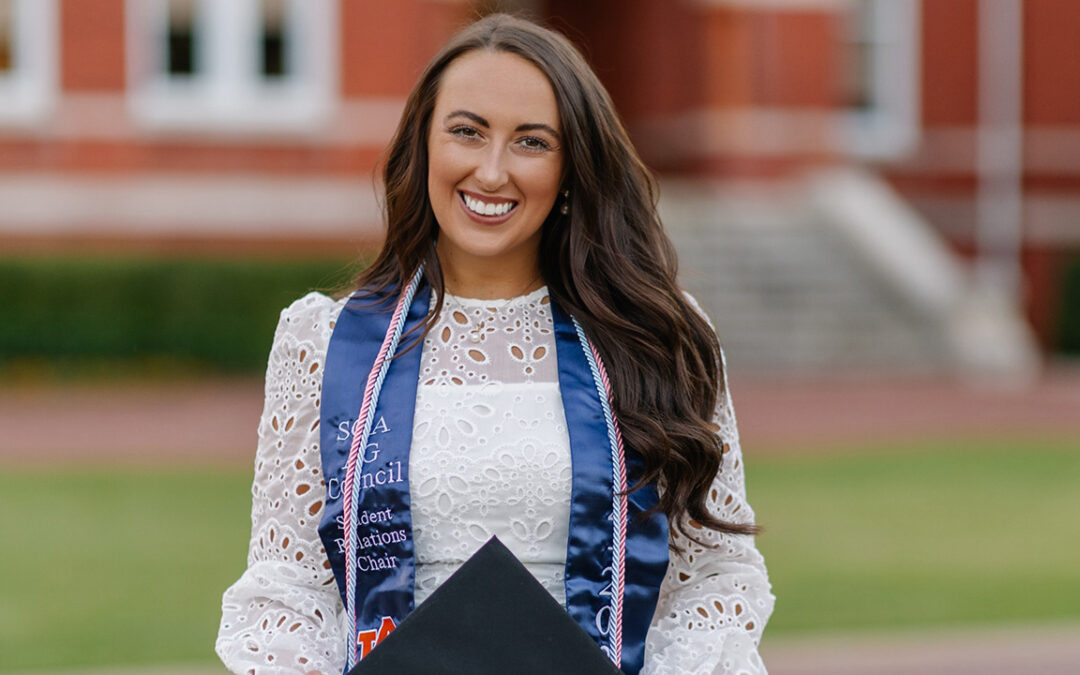
Madison Renfroe receives fall 2025 Dean’s Award
A first-generation Auburn University College of Agriculture student...

Will Rich selected spring 2025 student marshal
Advises future ag students to get involved The spring 2025 graduation marshal for the Auburn University College of Agriculture is a familiar face around Comer Hall. Will Rich was selected from among the agriculture spring graduates to represent the college at the...
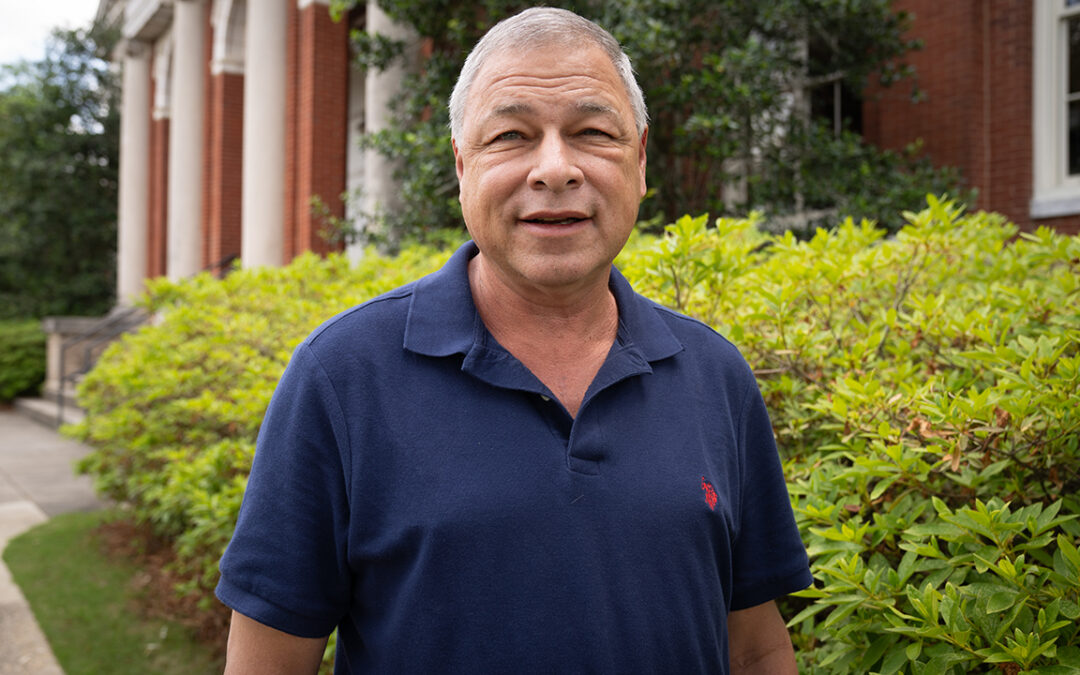
Batchelor named Water Resources Center Director
William Batchelor has been tapped as the new director of the Auburn University Water Resources Center, effective immediately. As director, he will lead a team of scientists working with communities, farmers, governments and agencies across Alabama to improve water...
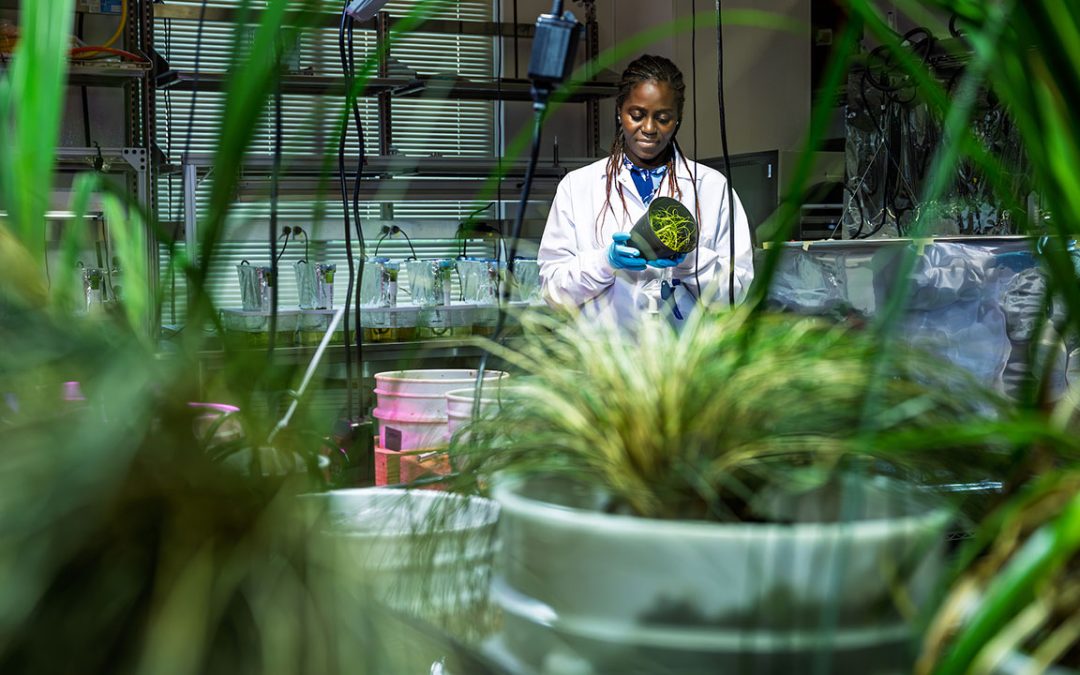
Going Green: Blersch’s lab addresses crucial environmental work
By Amy Weaver Contrary to what the name might suggest, the work currently happening in the Green Infrastructure Lab at Auburn has nothing to do with green-colored roads or buildings. No Emerald City here. “Green infrastructure is an approach to managing water and...
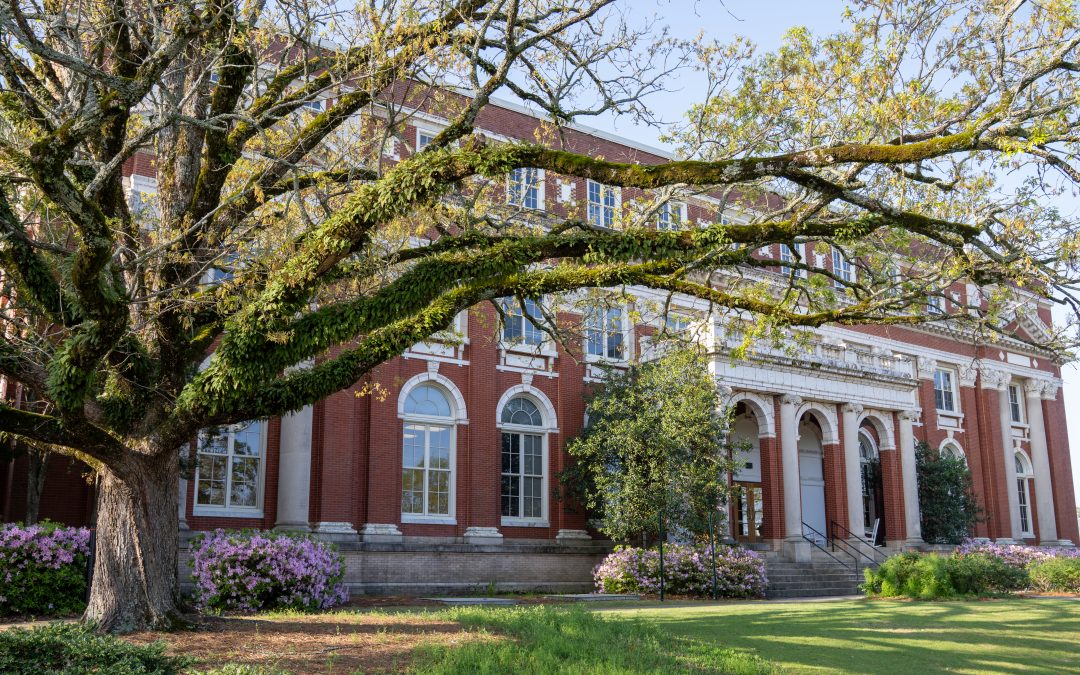
Three students receive presidential awards
Three students in the College of Agriculture recently received distinguished honors from the Auburn University President’s Office. Savannah Busby received the Presidential Graduate Opportunity Fellowship, a highly competitive opportunity awarded to only a few incoming...

Taylor named head of Agricultural Economics and Rural Sociology
Following a national search, Mykel Taylor was named head of the Auburn University Department of Agricultural Economics and Rural Sociology, effective April 15. She had served as interim head of the department since fall 2024. “Dr. Taylor’s effective leadership, along...
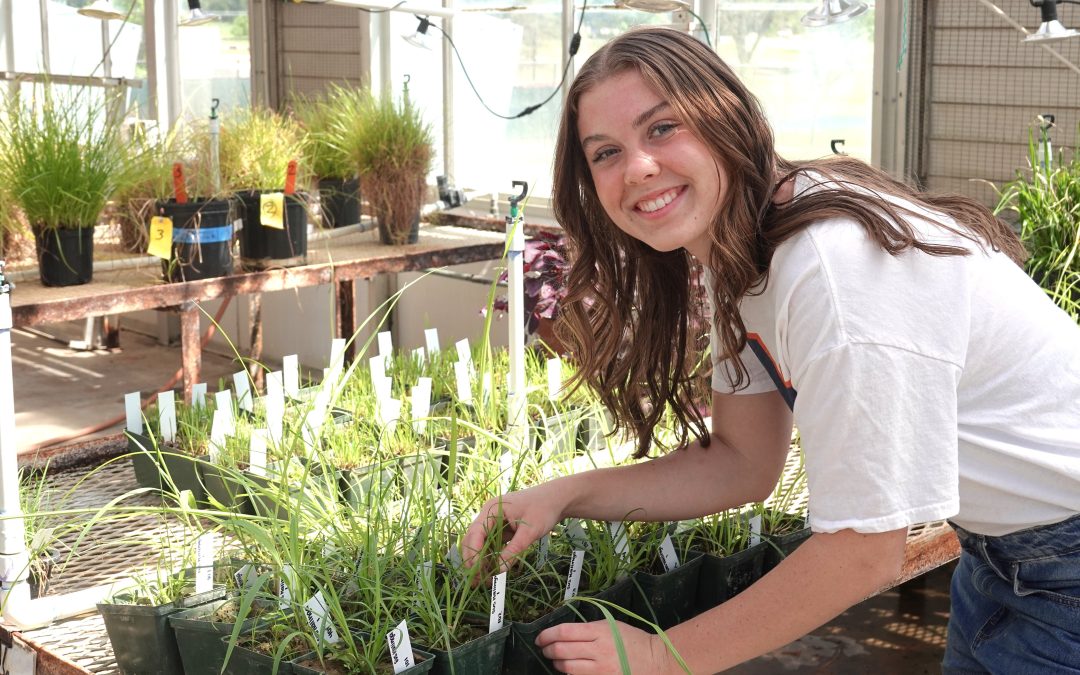
Applied biotechnology student receives prestigious internship
Auburn University College of Agriculture student Leah Johnson received a highly competitive collegiate internship with HudsonAlpha, a premier institute for biotechnology. She is the second student from the applied biotechnology major in the Department of Entomology...
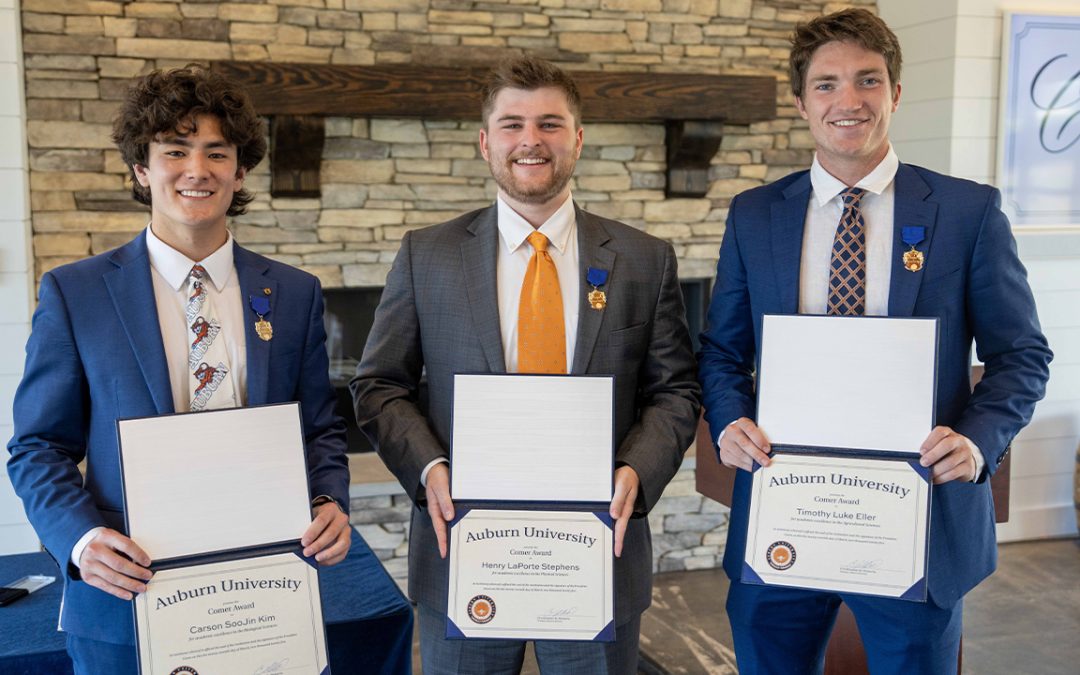
Three students receive 2025 Comer Awards
Hosted by the College of Sciences and Mathematics, in collaboration with the College of Agriculture, this year’s Comer Awards were presented to three graduating Auburn University students….

Geoff Williams named director of new Bee Center
Geoff Williams, associate professor, graduate program officer and longtime director of the AU-Bees Lab, is director of the new Auburn University Bee Center, effective Tuesday, April 1. In February, the Board of Trustees approved the establishment of the Auburn...
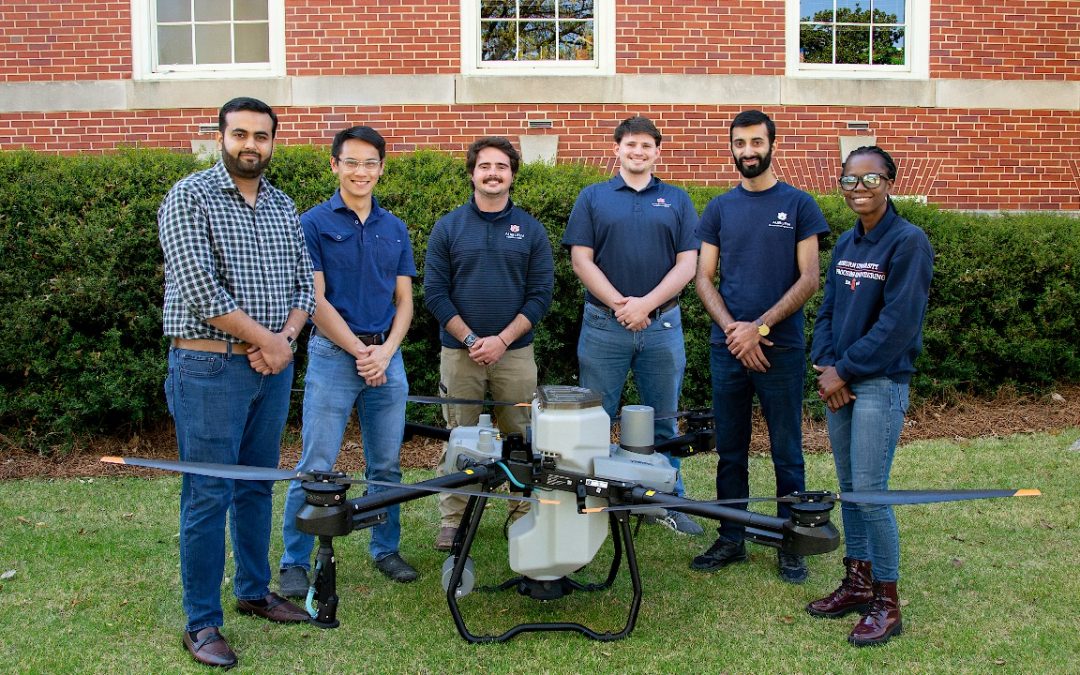
Innovating solutions to agricultural challenges
A team of both doctoral and undergraduate biosystems engineering students is tackling the age-old problem of precise fertilizer application with cutting-edge drone technology. According to NASA, they’re tackling it well.
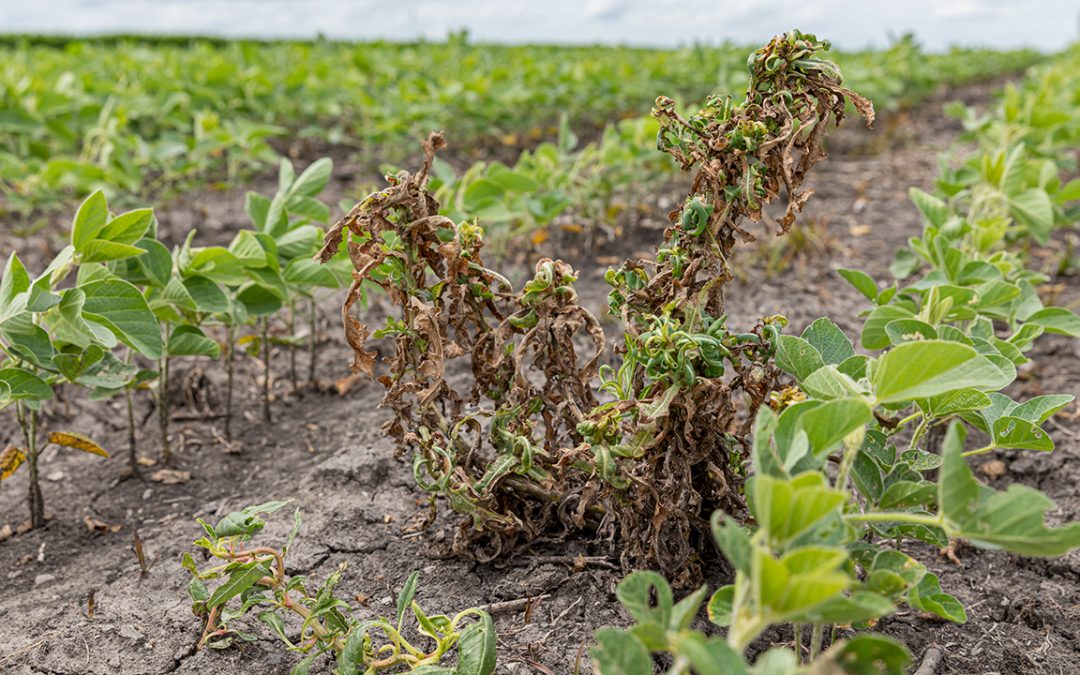
Decoding Dicamba
Auburn researchers help farmers adapt to EPA changes This year, major regulatory changes enacted by the Environmental Protection Agency (EPA) will affect farmers nationwide, specifically herbicide use for soybean and cotton producers. For 2025, dicamba herbicide...
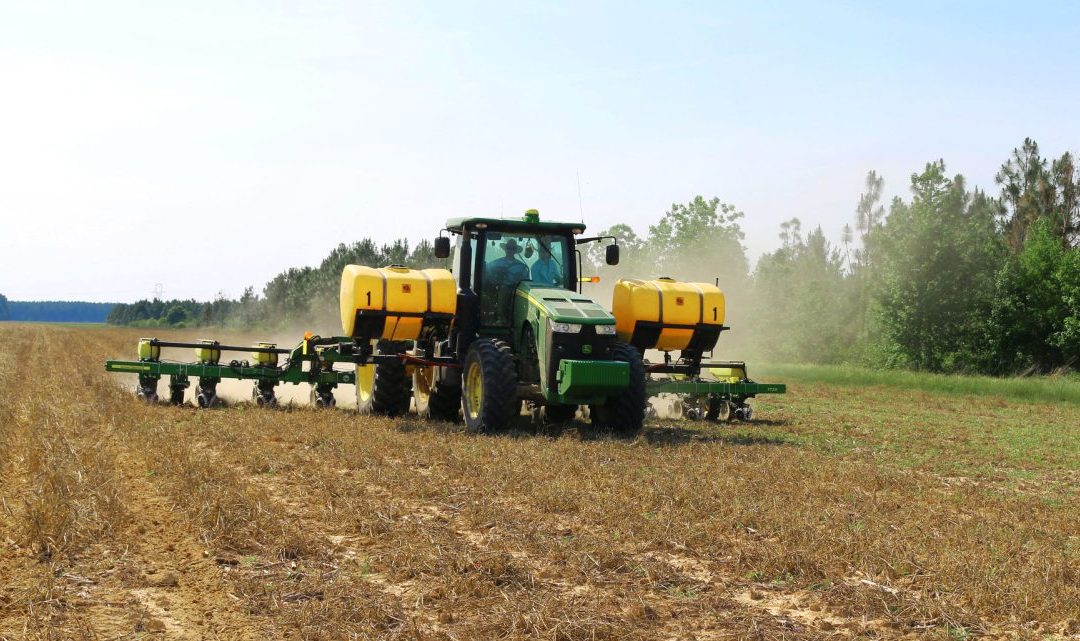
Agricultural grants address problems on Alabama farms
Is growing a cover crop on Alabama farms a solution or a problem for growers in the state who are trying to prevent soil and water erosion losses? A grant funded through the Alabama Agricultural Experiment Station research program for the current fiscal year will...

The Comer 150 Campaign: Rebuilding a legacy for tomorrow
As the College of Agriculture at Auburn University celebrated 150 years in 2022, it also announced plans to renovate its administrative building, Comer Hall. Last November, the Board of Trustees approved a comprehensive renovation of the building, including project...
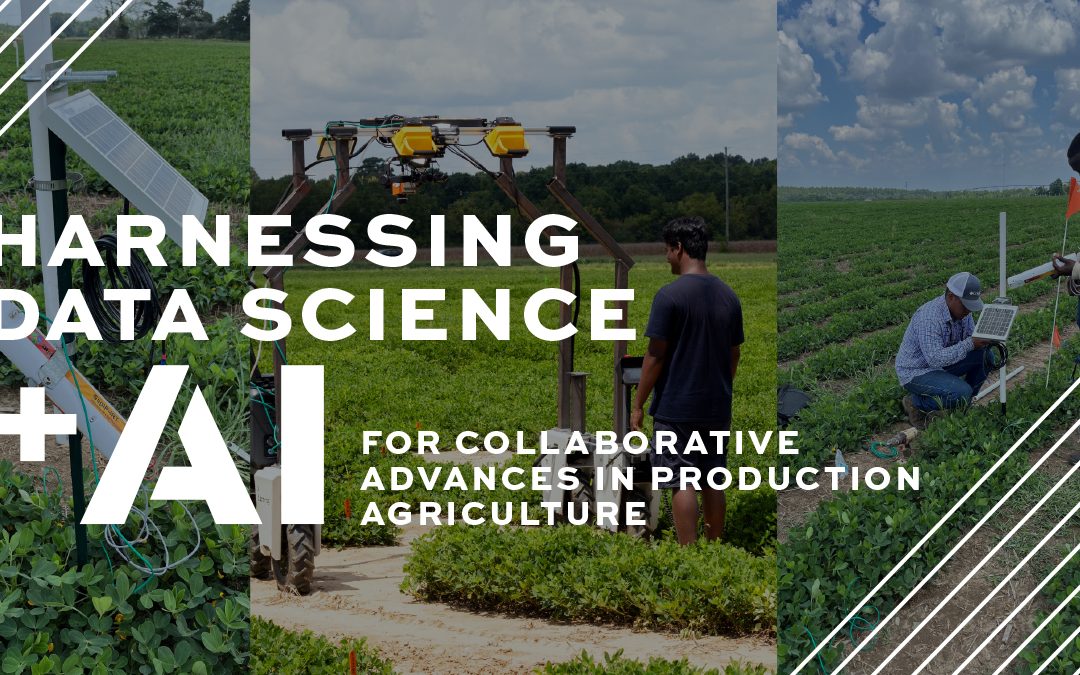
Auburn hosts forum on data science and AI in production agriculture and natural resources
Forum to be held 7:30 a.m. to 4:30 p.m. Monday, April 21 Auburn University faculty researchers from the Colleges of Agriculture, Sciences and Mathematics, and Engineering seek to advance innovations in agriculture and natural resources. Together, they are hosting a...

Adhikari to serve as interim associate dean, associate director
Sushil Adhikari will serve as the Auburn University College of Agriculture’s interim associate dean for research and interim associate director of the Alabama Agricultural Experiment Station, effective Feb. 16. He replaces Arthur Appel, who stepped into the role of...
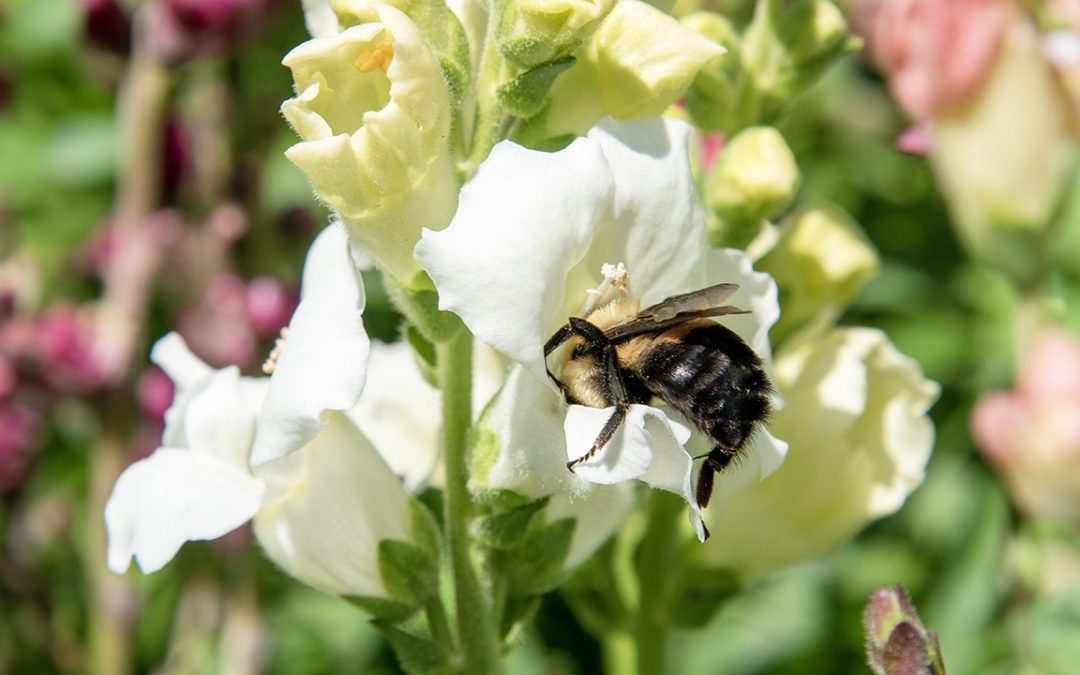
Board of Trustees approves two agriculture projects at February meeting
Children’s garden, new Auburn University Bee Center approved Two transformational projects for the Auburn University College of Agriculture were approved by the Board of Trustees at its meeting on Friday, Feb. 7. First, the board approved phase one of a new children’s...
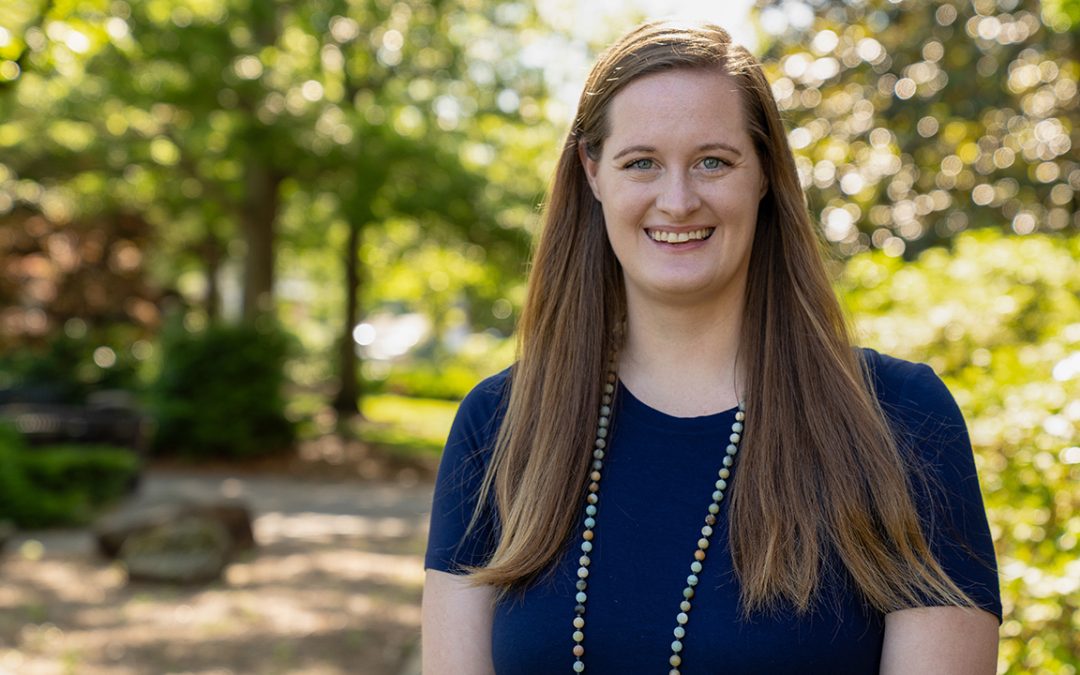
Beck earns two awards for academic advising excellence
Mallory Beck, academic advisor for the Auburn University College of Agriculture’s Department of Animal Sciences, recently received two awards recognizing her excellence in her profession. Beck received the Outstanding New Advisor Award from the Provost’s Office’s 2025...
Featured VIDEOS
The Season News & Research
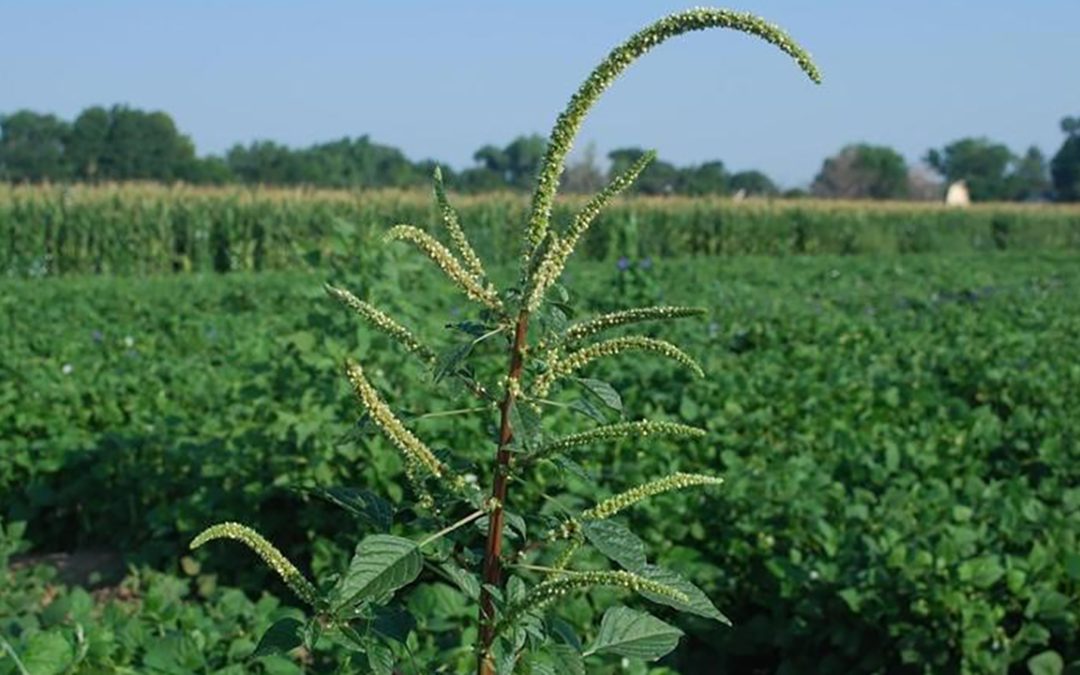
Weed Bionomics Lab leads fight against No. 1 crop pest
Imagine a weed that can produce 600,000 seeds per plant and grow as much as 2.5 inches per day. Such a weed exists, and it’s not being grown somewhere in a secure lab — it’s widespread in the fields of Alabama farmers and throughout the United States. This “super”...

Agricultural grants address problems on Alabama farms
Is growing a cover crop on Alabama farms a solution or a problem for growers in the state who are trying to prevent soil and water erosion losses? A grant funded through the Alabama Agricultural Experiment Station research program for the current fiscal year will...

Adhikari to serve as interim associate dean, associate director
Sushil Adhikari will serve as the Auburn University College of Agriculture’s interim associate dean for research and interim associate director of the Alabama Agricultural Experiment Station, effective Feb. 16. He replaces Arthur Appel, who stepped into the role of...

Experiment Station researchers leading nutrient management study with $1.3 million grant
Each year, the Alabama poultry industry produces two fully loaded Nimitz-class aircraft carriers’ worth of poultry litter, or about 3.6 billion pounds. Poultry litter is rich in nitrogen and phosphorus, and much of the waste product is applied to farmland as a...
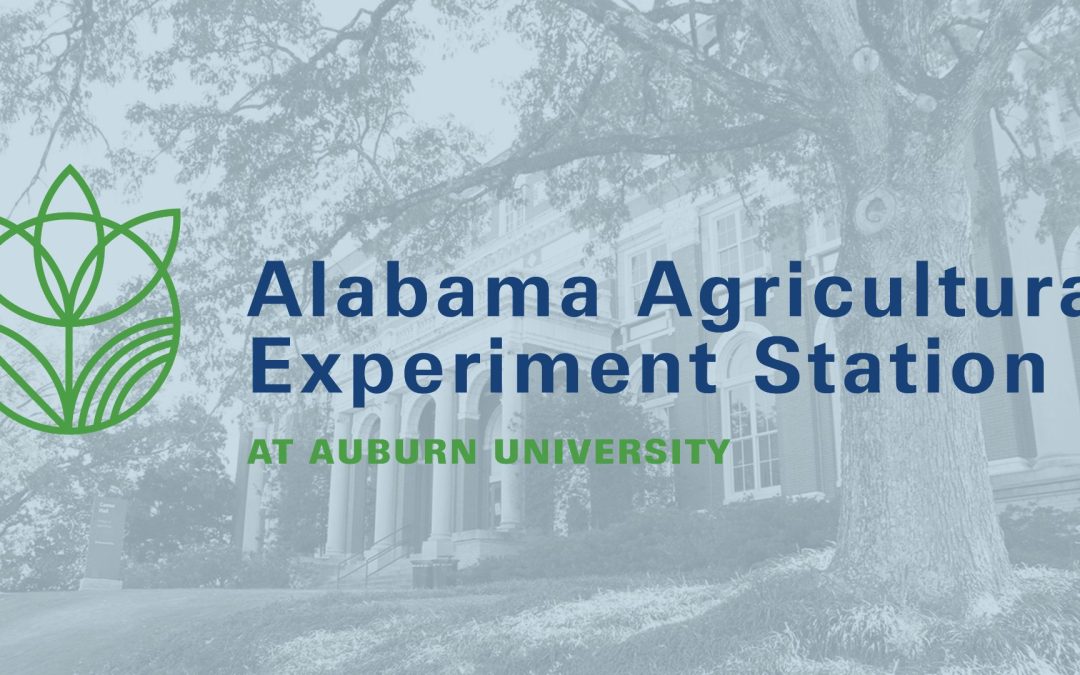
Researchers study potential savings from reducing time on feed for weaned pigs
Research made possible by $300,000 USDA-NIFA grant The scale of pork production in the U. S. is such that reducing the average pig’s time on feed by just one day can put $76 million back into pork producers’ pockets. Animal scientists at Auburn University are...
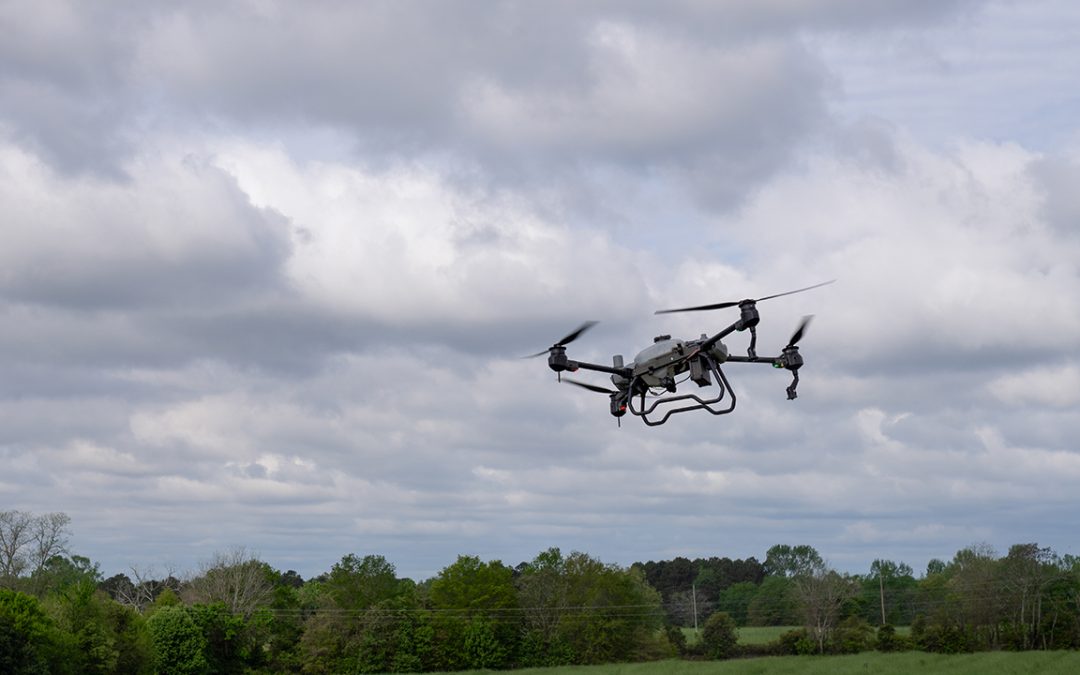
Using thermal imaging to measure peanut physiological characteristics
Auburn-developed method could advance efforts to breed a drought-tolerant peanut Auburn University researchers have devised a new means of measuring the physiological characteristics of peanut plants that should prove to be instrumental in speeding the breeding...
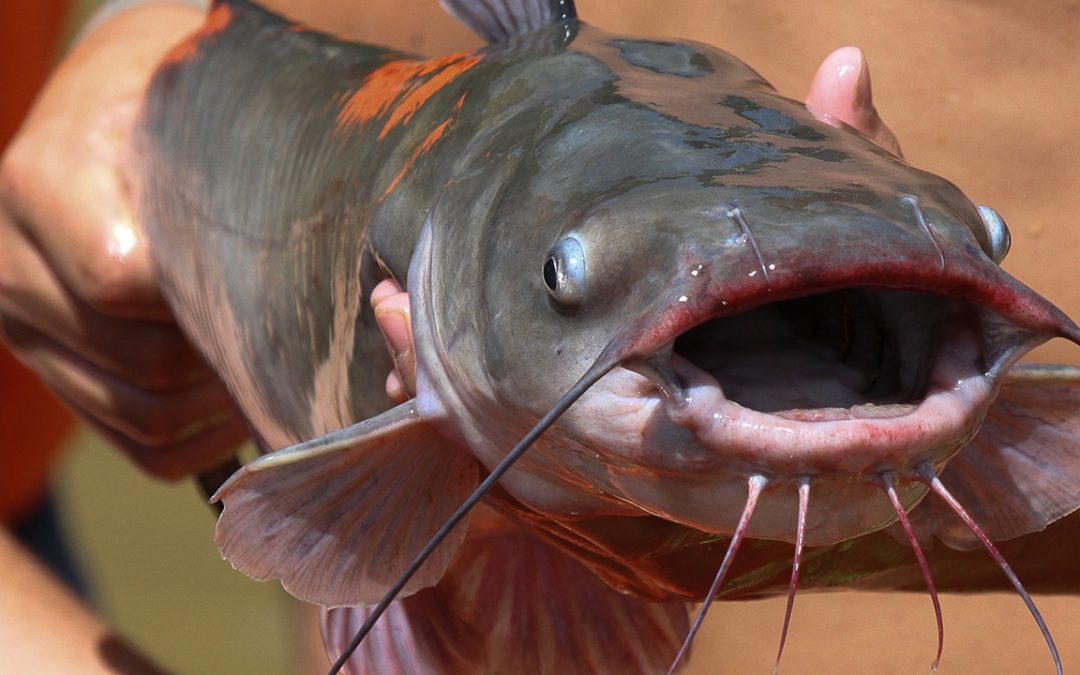
Taking the guesswork out of catfish sperm quality
Catfish farmers may be hurting their profitability by needlessly sacrificing male catfish when collecting sperm for breeding, according to a recent Auburn study. The same study discovered the indicators farmers commonly use to select males for breeding, like head size...
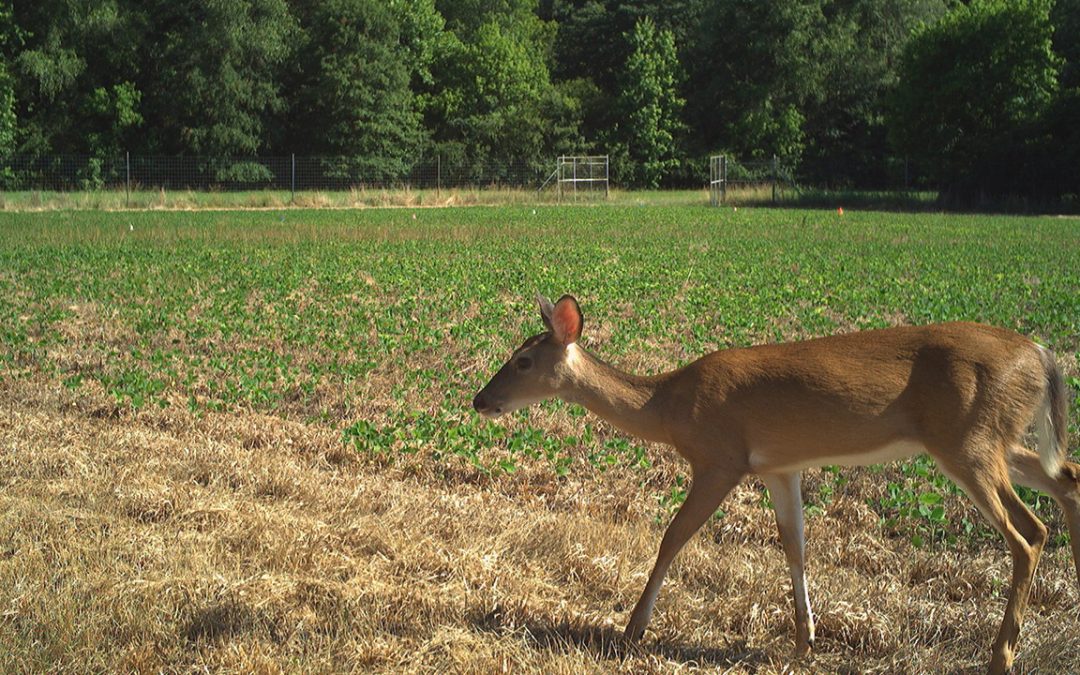
Auburn research looks to control deer feeding on row crops
When can there be too many deer even for a hunting enthusiast? When that same enthusiast is a row-crop farmer, and the deer are using their fields as an all-you-can-eat buffet. While deer grazing on crops has been a consistent problem for decades, it has escalated in...
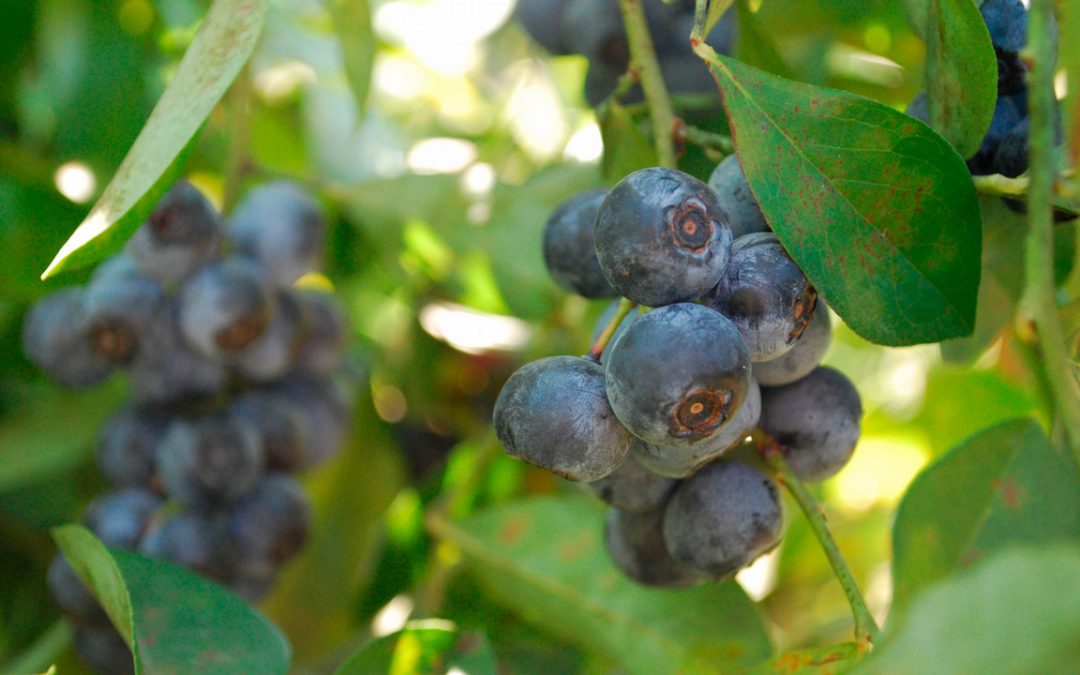
Finding frost-tolerant blueberries for Alabama growers
Alabama blueberry farmers could soon start growing more frost-tolerant cultivars thanks to recent research at Auburn University. Most Alabama growers are still heavily relying on the native species rabbiteye (Vaccinium virgatum Ait), while producers in neighboring...
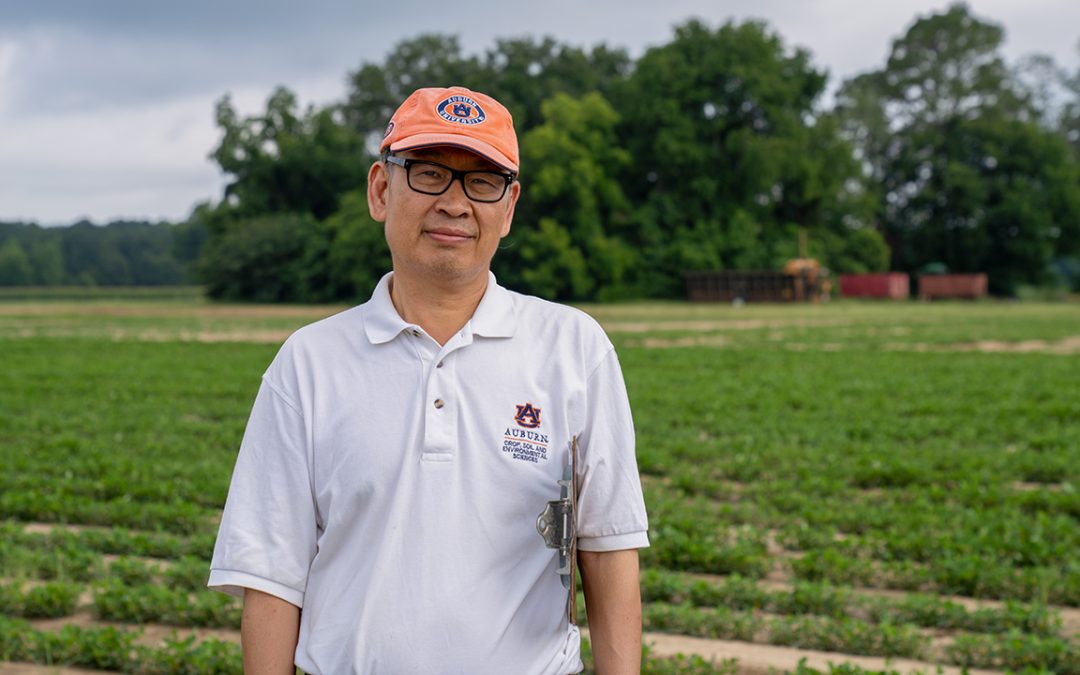
Peanut breeding making strides
The Auburn University peanut breeding program has made significant strides in a surprisingly short amount of time, with one of its varietal releases now commanding 40-50% of the peanut acreage in Alabama.
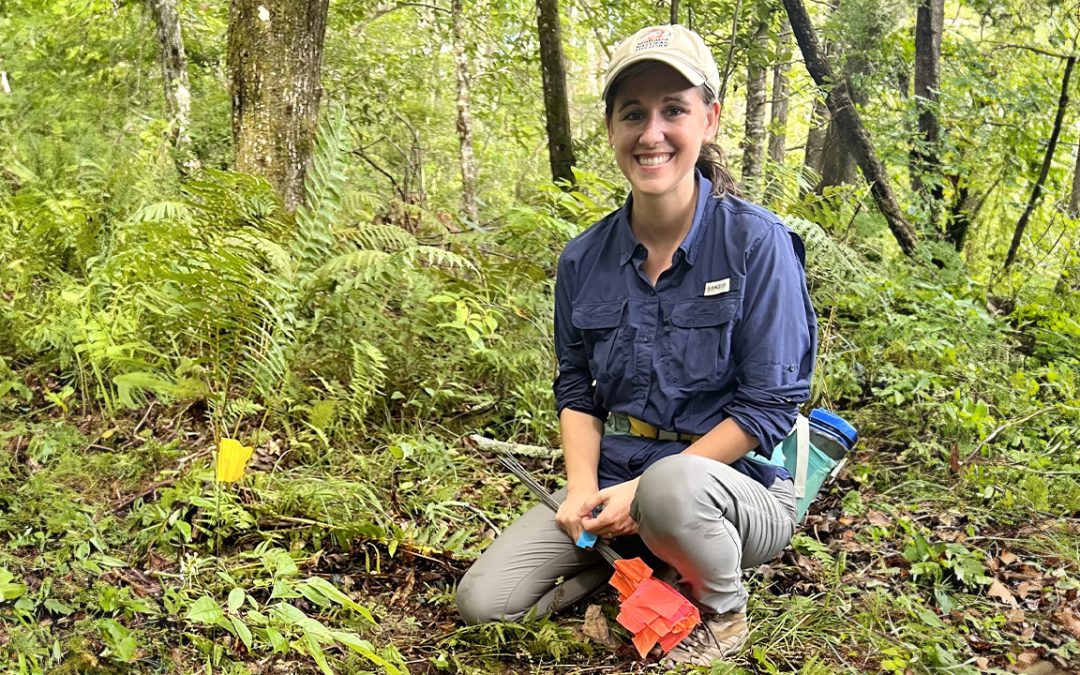
Lawson part of team shaping Alabama’s State Wildlife Action Plan
Auburn University’s Kelly Homan and Katelyn Lawson have joined forces to assist the state of Alabama in the creation of its 2025 State Wildlife Action Plan (SWAP) revision.
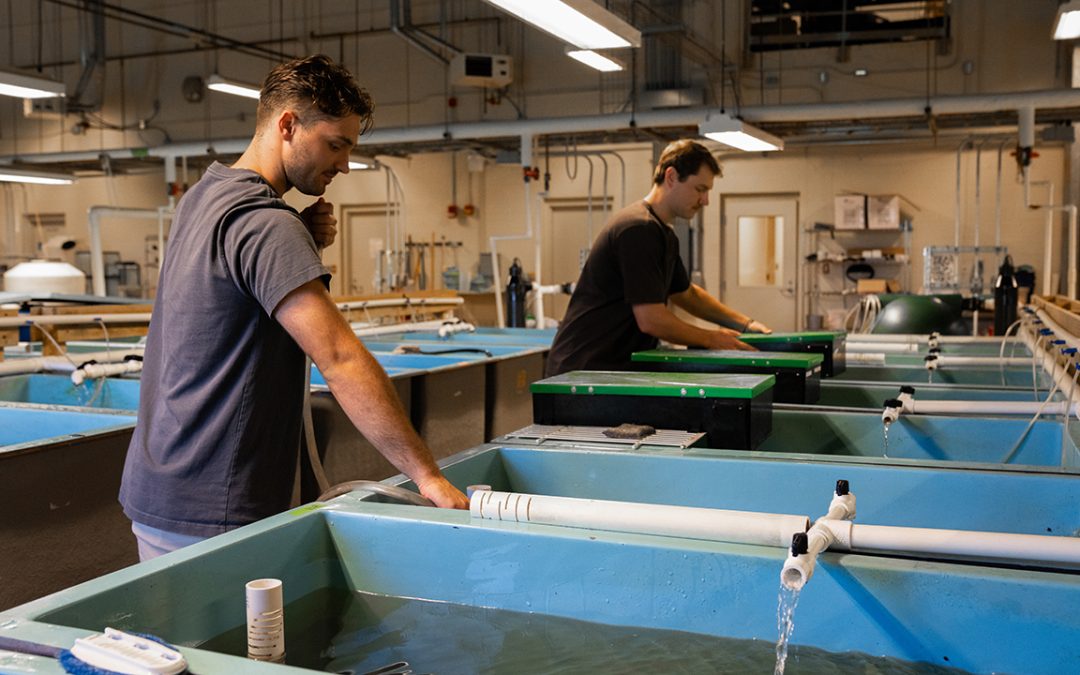
Researchers fight high mortality rate of largemouth bass
Vaccine development made possible by $300,000 USDA-NIFA grant Largemouth bass producers may soon have a new vaccine for a common pathogen affecting the unusually death-prone fish species. Auburn University researchers are working to lower the fish’s near 80% mortality...
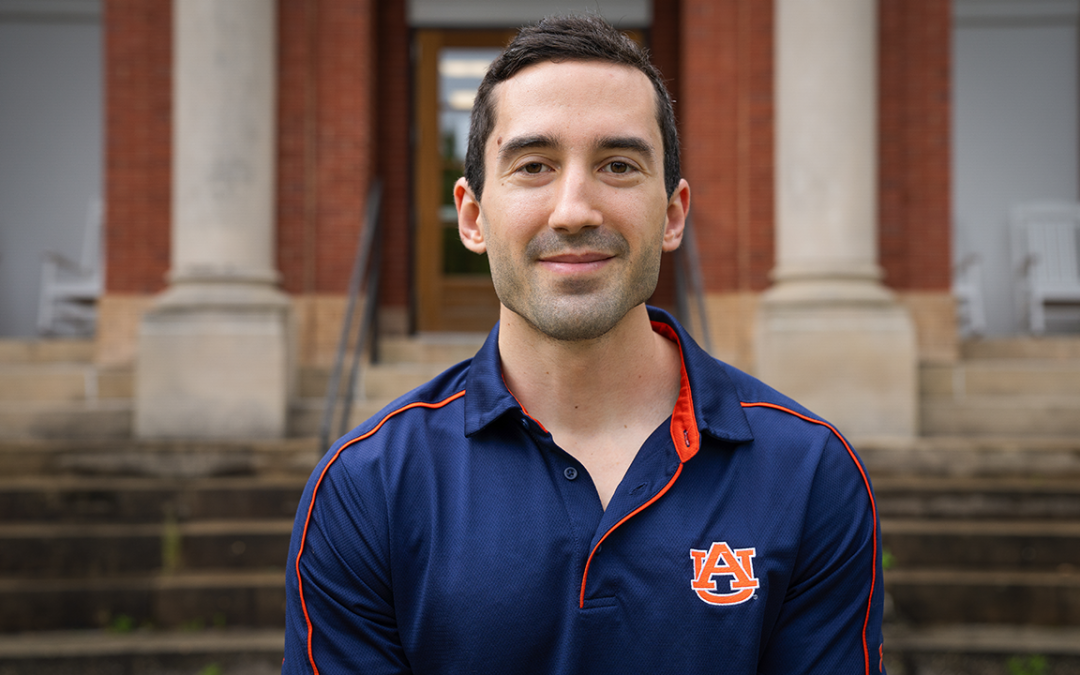
Mahas part of first team to investigate Southern cotton leafroll dwarf virus management
As John Mahas prepared for a move to start postdoctoral research at Cornell University, he was still wrapping up research in the Auburn University lab where he earned his master’s and doctorate. It was here he focused his work on managing the emerging cotton leafroll dwarf virus (CLRDV) and its vector, the cotton aphid, Aphis gossypii. This research led to the publication of two peer-reviewed papers, one of which marked a first in the Southeastern United States.

Water Resources Center engages community in Moore’s Mill Creek Planning
As a project manager with Auburn’s Water Resource Center, Cooley manages watershed restoration projects and educates communities on how to care for rivers, streams and creeks.
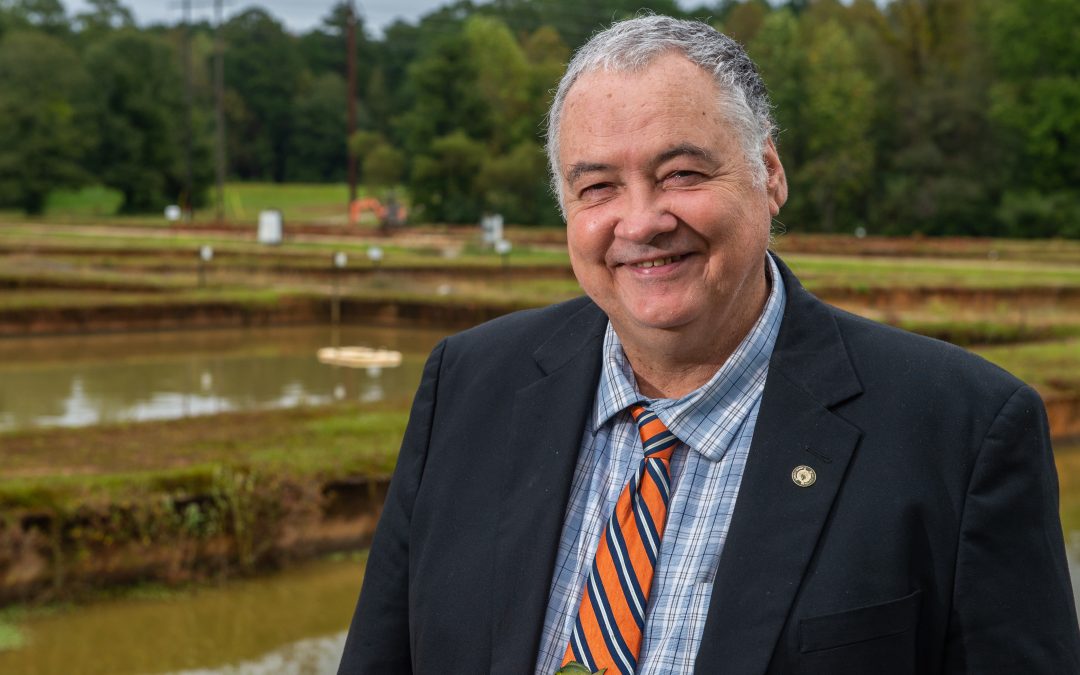
Dunham awarded $650K to research improvement in genotypes of multiple catfish
USDA-NIFA recently awarded a $650,000 grant to Rex Dunham to genetically improve the overall genotype and phenotype of both channel catfish and a hybrid between channel catfish females and blue catfish males. Dunham is a professor in the School of Fisheries,...
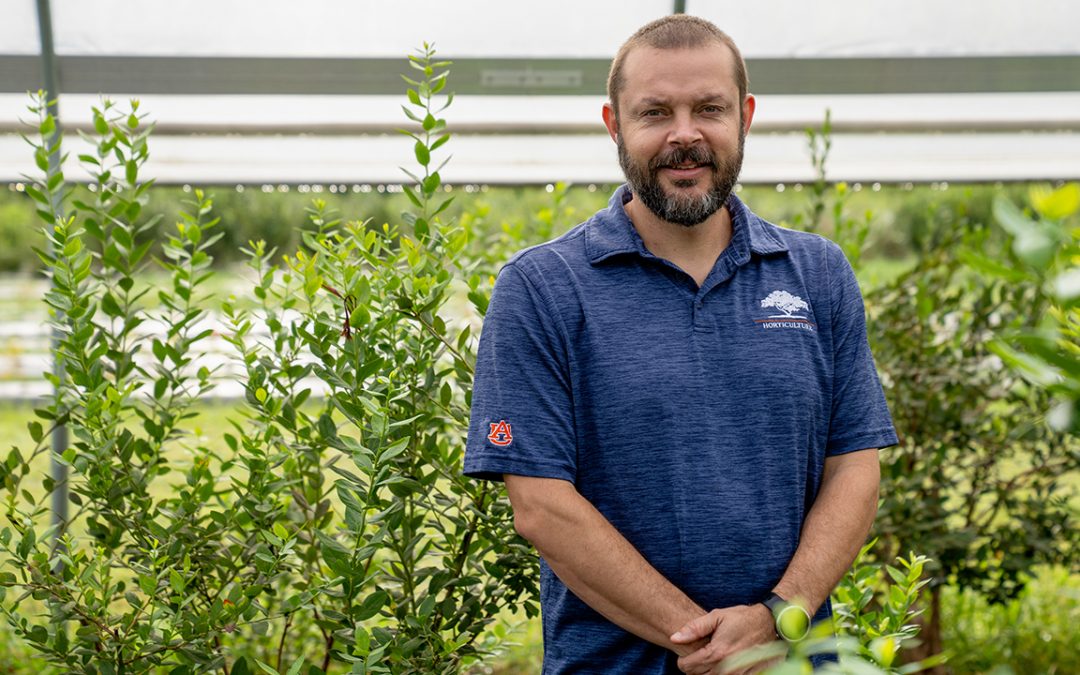
Promoting blueberry production in Alabama
As the U.S. celebrates National Blueberry Month in July, researchers in the Auburn College of Agriculture and the Alabama Agricultural Experiment Station are looking for ways to boost blueberry production in the state by introducing more profitable cultivars for both field and protected cultivation.
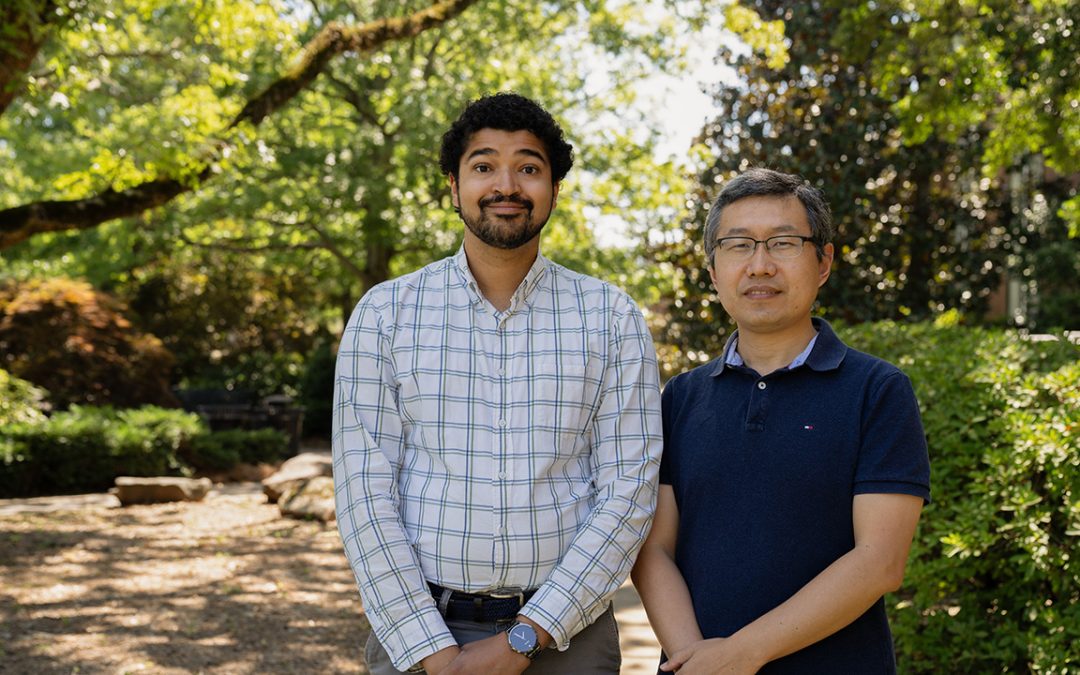
Agricultural economists’ simulator to weigh in on U.S. Conservation Reserve Program
Researchers at Auburn University aim to reduce U.S. greenhouse gas emissions due to agriculture by modifying one of the world’s largest voluntary conservation programs: the USDA’s 25-million-acre Conservation Reserve Program (CRP).
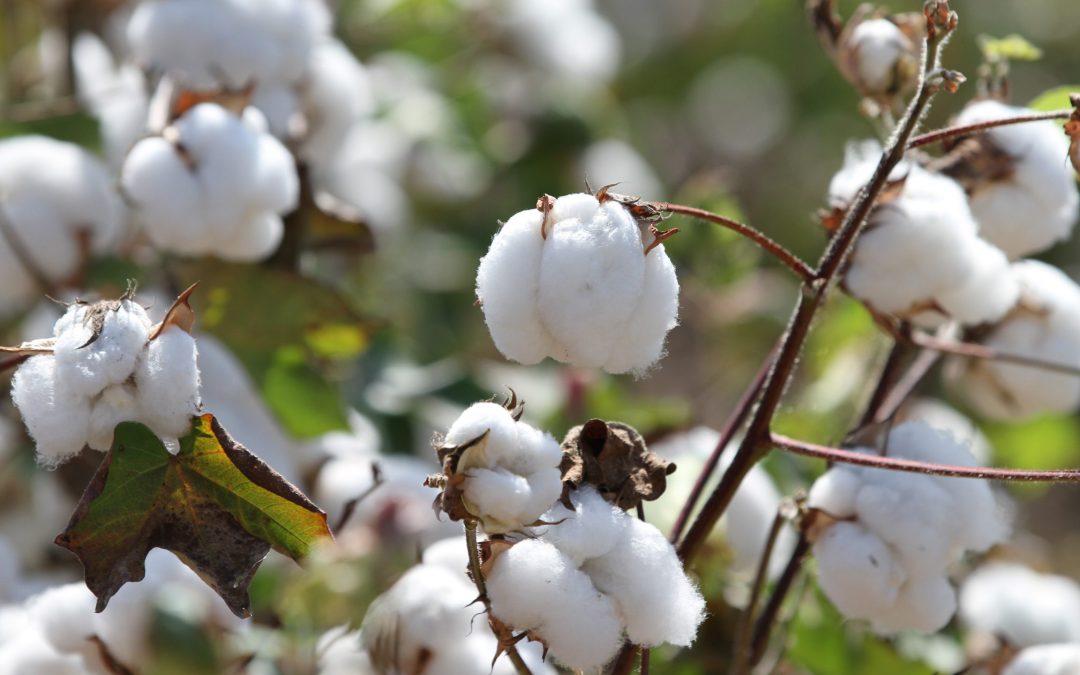
Understanding the role of the soil microbiome in plant health
Soil scientist Audrey Gamble is working to improve sustainability of cotton production by improving soil microbial structure and function.
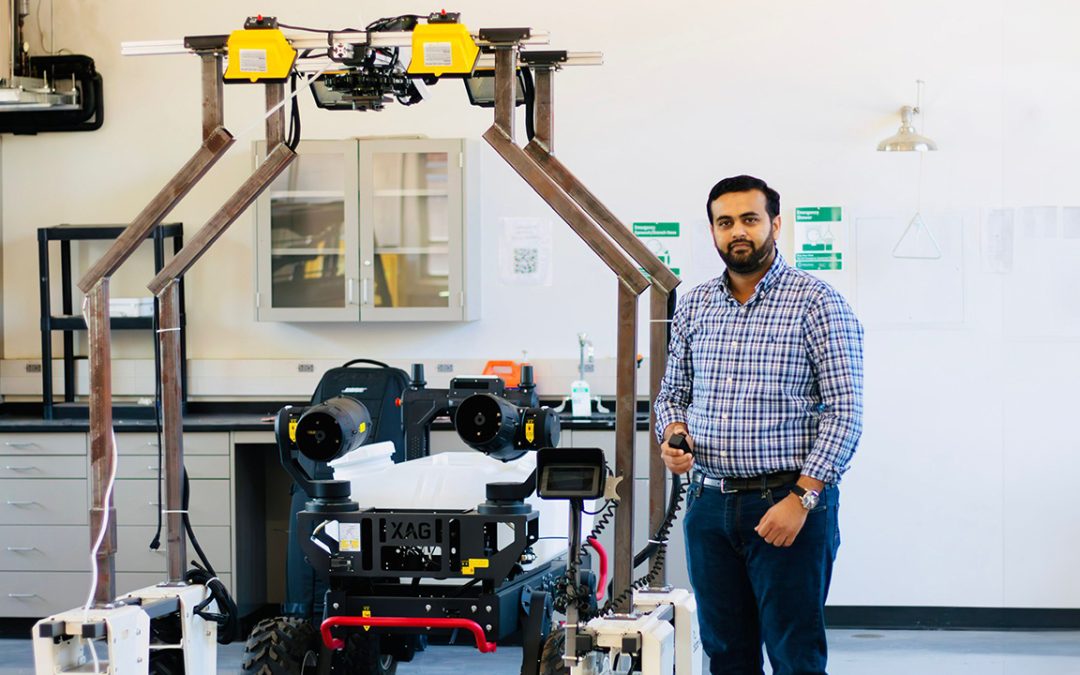
Auburn scientists begin project to build robot to help ornamental plant growers
An AI-powered robot will be able to inventory thousands of plants while also collecting data on plant growth, pests and diseases.
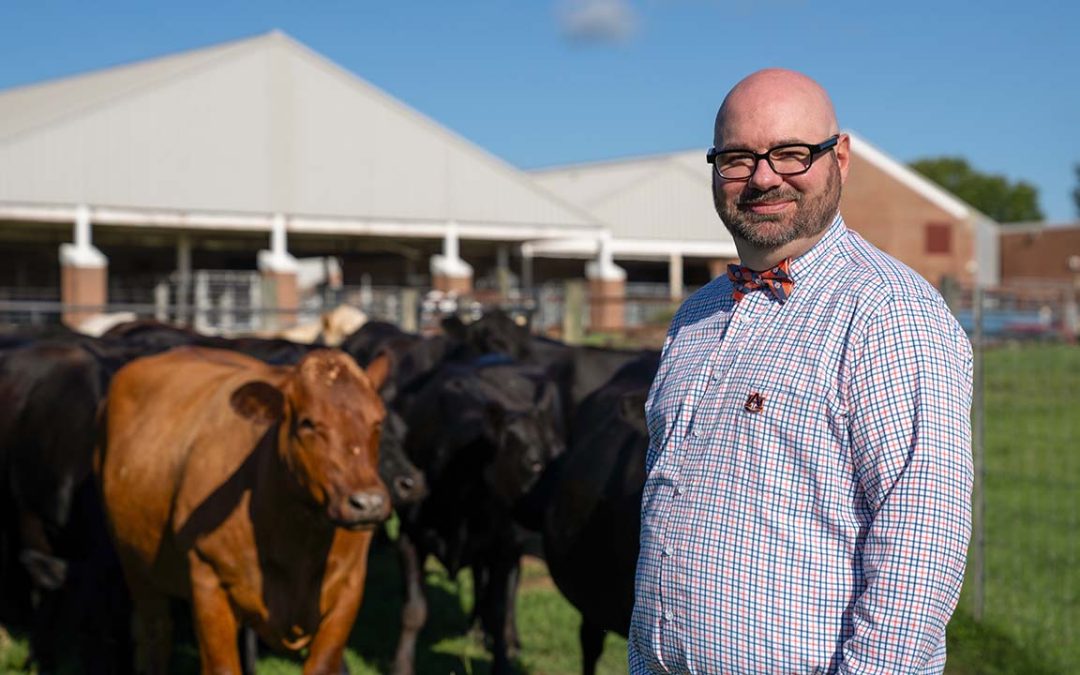
Sustainable beef production system could improve profitability
Sometimes, one Auburn University researcher says, it makes sense to increase input costs in one part of the system if it means costs are decreased somewhere else or the profit margin of the system is increased.

Maity awarded $300,000 in support of plant research and agricultural production systems
The USDA National Institute of Food and Agriculture (NIFA) Agriculture and Food Research Initiative (AFRI) recently awarded Aniruddha Maity a $300,000 grant to….


